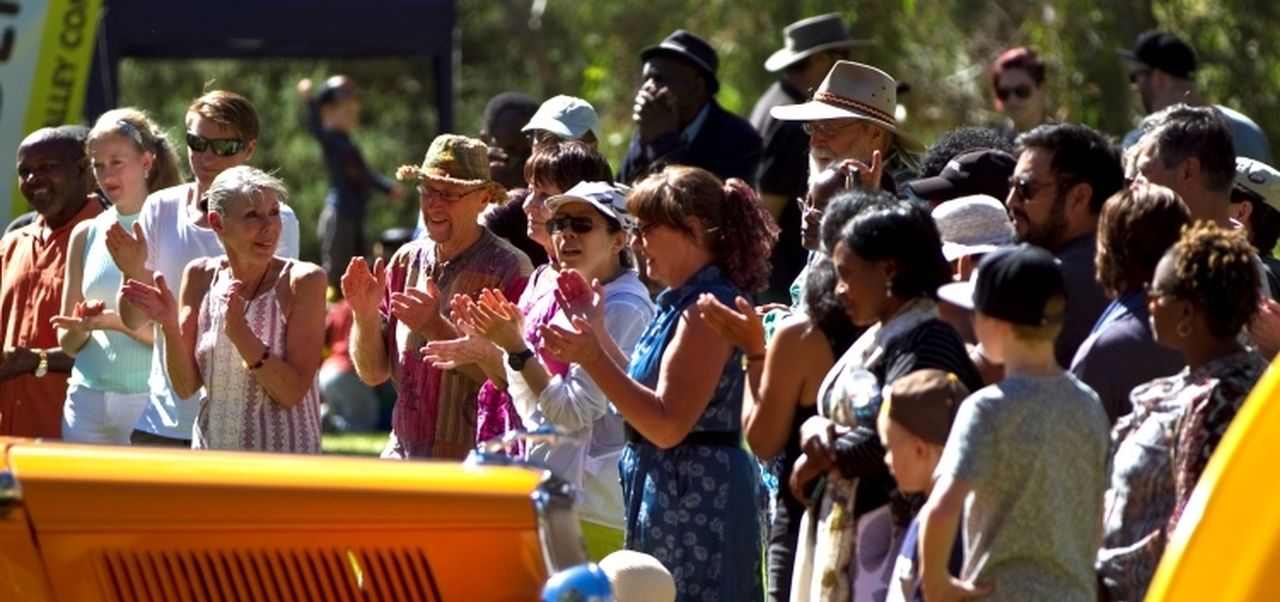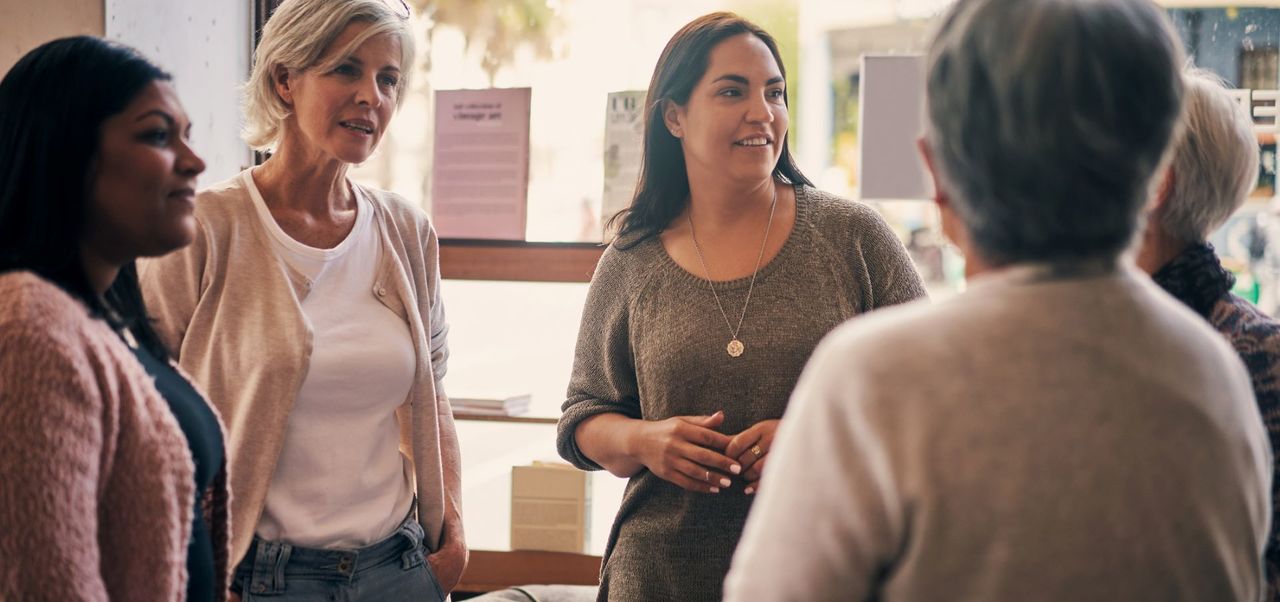If you, a child, or another person is in immediate danger, call 000.
If you are not in immediate danger, you can still report domestic or family violence to police by calling 131 444, or by attending your local police station.
Adelaide Hills Council does not provide emergency assistance or direct support services to people who are experiencing, or at risk of experiencing, domestic, family violence and/or sexual assault.
Information about support services is provided below. For more comprehensive information and advice, contact or visit the websites of the organisations listed on this page.
On this page
- Crisis counselling and support
- What is domestic, family and sexual violence?
- Support for women and families
- Supporting someone experiencing domestic and family violence
- Support for people who have been sexually assaulted
- Support for children and young people
- Support for older people
- Support for people in LGBTIQA+ communities
- Support for men who use violence
- Support for pets and people in domestic and family violence situations
Crisis counselling and support
If you or someone you know is experiencing domestic and family violence, call 1800RESPECT (1800 737 732) for confidential domestic, family and sexual violence counselling, information and support service.
Or reach out via the online chat on the 1800RESPECT website (www.1800respect.org.au).
1800RESPECT is available for free, 24 hours a day, 7 days a week.
If English is not your first language, you can ask for an interpreter.
Additional support services are provided further below on this page.
What is domestic, family and sexual violence?
Domestic violence, also commonly referred to as ‘intimate partner violence’, refers to any behaviour within an intimate relationship (including current or past marriages, domestic partnerships or dates) that causes physical, sexual or psychological harm.
This is the most common form of violence against women.
Intimate partner violence can also occur outside of a domestic setting, such as in public and between two people who do not live together.
Family violence is a broader term than domestic violence, as it refers not only to violence between intimate partners but also to violence perpetrated by parents (and guardians) against children, between other family members, and in family-like settings.
This includes for example elder abuse, violence perpetrated by children or young people against parents, guardians or siblings, and violence perpetrated by other family members such as parents-in-law.
Coercive control is often a significant part of a victim-survivor’s experience of family and domestic violence.
It describes someone’s use of a pattern of abusive behaviours against another person over time, with the effect of establishing and maintaining power and dominance over them.
Abusive behaviours that perpetrators can use as part of their pattern of abuse include:
- physical abuse (including sexual abuse)
- monitoring a victim-survivor’s actions
- restricting a victim-survivors freedom or independence
- social abuse
- using threats and intimidation
- emotional or psychological abuse (including spiritual and religious abuse)
- financial abuse
- sexual coercion
- reproductive coercion
- lateral violence
- systems abuse
- technology-facilitated abuse
- animal abuse.
Sexual violence refers to sexual activity that happens where consent is not freely given or obtained, is withdrawn or the person is unable to consent due to their age or other factors.
It occurs any time a person is forced, coerced or manipulated into any sexual activity.
Such activity can be sexualised touching, sexual abuse, sexual assault, rape, sexual harassment and intimidation and forced or coerced watching or engaging in pornography.
Sexual violence can be non-physical and include unwanted sexualised comments, intrusive sexualised questions or harassment of a sexual nature.
Forms of modern slavery, such as forced marriage, servitude or trafficking in persons may involve sexual violence.
Violence and abuse can happen in any kind of relationship. It is never OK.
Domestic, family and sexual violence is damaging to survivor-victims, their children, families and the whole community.
Follow the below links to find out more about domestic, family and sexual violence.
-
Domestic, family and sexual violence - 1800RESPECT
-
National Plan to End Violence against Women and Children 2022-2032
-
Key statistics about violence against women in Australia - Our Watch
-
What drives violence against women? - Our Watch
-
Australian Bureau of Statistics’ (ABS) 2021-22 Personal Safety Survey (PSS)
Support for women and families
If you or someone you know needs help, call the Domestic Violence Crisis Line (24 hours) on 1800 800 098 for crisis counselling, support, and referral to safe accommodation. This service is operated by Women's Safety Services SA, and is free to call in South Australia, available 24 hours a day, 7 days a week.
Or you can call 1800RESPECT (1800 737 732) for confidential domestic, family and sexual violence counselling, information and support service. Free, available 24 hours a day, 7 days a week. Or reach out via the online chat on the 1800RESPECT website (www.1800respect.org.au). If English is not your first language, you can ask for an interpreter.
South Australia’s Domestic Violence Disclosure Scheme (DVDS) provides a way for a person who may be at risk of domestic violence to get information about their partner or former partner, to help make decisions about their safety and the future of the relationship. A request for information can be made by either the person who is feeling unsafe in their relationship, or by a person concerned about the welfare of someone they know. Apply online or if you need assistance with filling out the form, go to your local police station.
For more information and advice, follow the links below.
-
Women’s Safety Services SA (WSSSA)
-
1800RESPECT
-
South Australia’s Domestic Violence Disclosure Scheme (DVDS)
-
Women’s Information Service
-
The Haven Mount Barker – Women’s Information Service
-
Women’s Domestic Violence Court Assistance Scheme
-
Family and Domestic Violence Support Services - Relationships Australia SA
Supporting someone experiencing domestic and family violence
If someone you know is experiencing domestic or family violence you can contact 1800RESPECT on 1800 737 732 or through the online chat on their website (www.1800respect.org.au).
Follow the link below to find out more about how to support someone.
Support for people who have been sexually assaulted
If you or someone you know has experienced sexual violence, you can contact 1800RESPECT on 1800 737 732 or through the online chat (via www.1800respect.org.au).
Yarrow Place Rape and Sexual Assault Service is a service for anyone who has been sexually assaulted. Yarrow Place provides free and confidential service for people aged 16 years and over, at the time of the sexual assault. Call 1800 817 421 (24/7 for recent rape or sexual support), or email info@yarrowplace.sa.gov.au.
Follow the links below for more information.
Support for children and young people
Being a witness to violence is distressing for children and young people, whether or not the violence is directed at them.
Young people aged 5 to 25 can call Kids Helpline on 1800 551 800 for confidential phone and online counselling service. Or reach out through WebChat counselling. Free, available 24 hours a day, 7 days a week.
To report a reasonable suspicion that a child has been or is being harmed, phone the Child Abuse Report Line (CARL) on 131 478. The report line is open 24 hours a day, 7 days a week.
Follow the links below for more information about supporting a child who is exposed to domestic or family violence.
Support for older people
Older people have the right to be safe and to be treated with dignity and respect. Decisions about their lives, finances, where they live, health care, lifestyle and relationships are important and older people have the right to make these decisions as they wish.
Every year, approximately 5% of older people will experience some form of mistreatment, abuse, neglect, by someone known and trusted to them. For every reported case, another five cases remain hidden and unreported.
Follow the links below to services that can provide information and support if you have any concerns about elder abuse
If you suspect you, or someone you know, is being abused or mistreated, you can call the Adult Safeguarding Unit on 1800 372 310 for free, confidential advice, information, or support, or to make a report to the Unit. Available Monday to Friday, 9.00 am to 5.00 pm (except on Public Holidays). Or you can email adultsafeguardingunit@sa.gov.au
or complete the online report form. The Adult Safeguarding Unit cannot respond to emergencies. If your situation is an emergency, call 000 to speak with police or ambulance services.
If you have any concerns about elder abuse, follow the links below to services that can provide support and advice.
Support for people in LGBTIQA+ communities
People who identify as lesbian, gay, bisexual, transgender, intersex, queer, asexual, or as other diverse sexuality and gender identities (LGBTIQA+) experience high rates of domestic, family and sexual violence.
If you are a person who identifies as LGBTIQA+ and are worried about domestic, family and sexual violence, you can call 1800RESPECT (1800 737 732) for confidential domestic, family and sexual violence counselling, information and support service. Or chat online via their website (www.1800respect.org.au). Free, available 24 hours a day, 7 days a week.
Follow the links below to more information and support.
-
QLife - a peer support and referral service for LGBTIQA+ people and their loved ones
-
WithRespect - a family violence and intimate partner violence service supporting LGBTIQA+ communities and their families
-
Preventing violence against LGBTIQA+ people - Our Watch
-
Say It Out Loud - an online resource focused on LGBTIQA+ relationships
-
Supporting people who identify as LGBTIQA+ (1800RESPECT)
Support for men who use violence
There is support available for men who use violence to change their controlling and violent behaviour. There is also support available for men who are worried about their thoughts and behaviour escalating to physical violence.
Men who have been or are still behaving abusively can call the Men’s Referral Service on 1300 766 491 for a confidential counselling service. If English is not your first language, you can ask for a translator.
Men with concerns about mental health, anger management, family violence (using and experiencing), addiction, relationship, stress and wellbeing can call MensLine Australia on 1300 78 99 78 for free professional 24/7 telephone counselling.
For more information and support, follow the links below.
Support for pets and people in domestic and family violence situations
Research shows that victims of domestic violence are more likely to delay leaving an abusive relationship if they own a pet. Studies have also found that perpetrators of domestic and family violence often abuse pets to control women and children, resulting in significant trauma to women and children witnessing the threat or actual abuse of pets.
In response, RSPCA South Australia have established the Safe Kennels DV Project. If you wish to discuss emergency accommodation for your pet, call RSPCA South Australia on 1300 47 7722. If you are able to provide a safe space for a pet in need, RSPCA would like to hear from you.
Safe Pets Safe Families is a charity in South Australia that works with registered foster carers and boarding services, to ensure pets stay safe, and allow owners to get back on their feet before finally being reunited permanently with their beloved pets. Call the team on 0490 818 879 (Crisis Intake) or email admin@safepetssafefamilies.org.au.
Follow the links below for more information.

